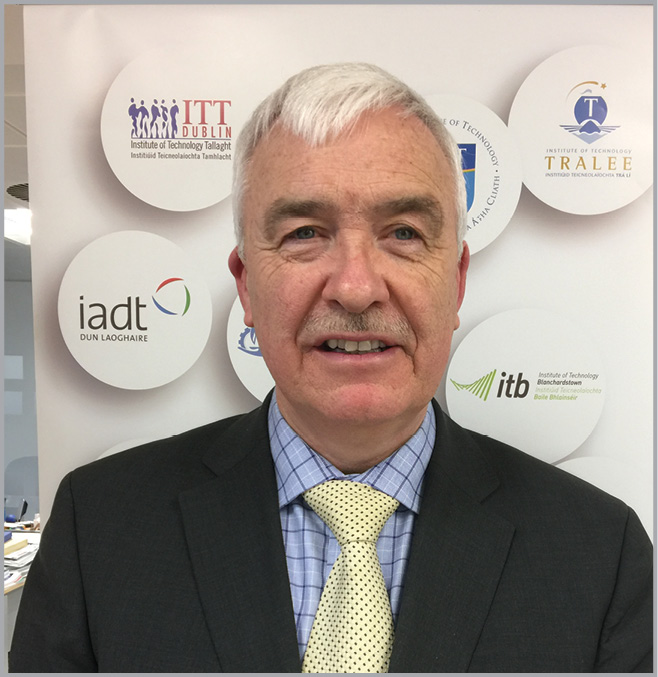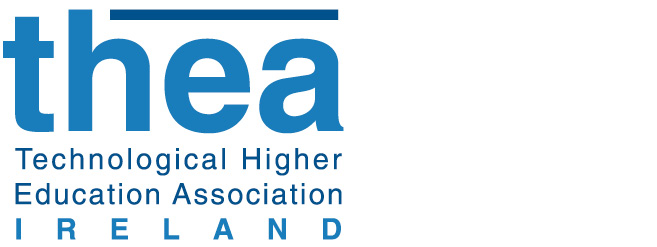THEA: A fresh focus


THEA, the new representative body for Institutes of Technology in Ireland is hoping to galvanise the sector in challenging financial times.
In November 2014 the Presidents of the Institutes of Technology (IoTs) initiated a process aimed at reconfiguring their representative body, then known as Institutes of Technology Ireland (IOTI). They sought, in particular, to identify ways in which this new organisation could play a more central role in the world of higher education in Ireland; and to enable DIT, the largest of the 14 IoTs, to become a member. The Presidents’ initiative was grounded on a strong and shared set of convictions. They knew that they needed a strong and united sectoral body that would be adept at representing and advocating for the sector to the public and to all stakeholders; that would be capable of inputting in a timely and well informed way to policy development and critique; and that would be designed to provide, where necessary, shared services to member institutions.
Fast forward to January 2017 and it is evident that the Presidents’ initiative has borne fruit. The reconfigured organisation – the Technological Higher Education Association (THEA) – is now formally established. DIT has joined the organisation and is expected to provide significant leadership and momentum for the organisation in the ensuing years. The THEA board has appointed a new Chief Executive Officer, Dr Joseph Ryan, who will take up the role at the beginning of February 2017. Dr Ryan knows the sector intimately, having served as Vice President Academic and Registrar of Athlone Institute of Technology for the past 15 years. He is relishing the challenge of developing THEA in line with its members’ aspirations and ambitions in a period of unprecedented change for the sector.
“The Institutes of Technology,” he says, “have played a pivotal role in the transformation of the economic and social infrastructure of Ireland since their establishment in the early 1970s. Through undergraduate programmes that are employer and market-focused, they have been and continue to be at the forefront of providing Ireland’s modern economy with graduates (over 23,000 annually) that have the full array of leading-edge skills demanded by our knowledge-based industries.
“Through industry-focused research and business incubation programmes, they are at also at the forefront of regional development in Ireland, and in enhancing the country’s innovation and entrepreneurial capacity. And in all this activity, they ensure that educational opportunities are provided to non-traditional learners from diverse backgrounds, including many who are first-in-family participants at third level; and that student progression is enabled through flexible learning pathways that span Levels 6 to 10 of the National Framework of Qualifications.”
He continues: “This is a proud heritage and I see it as the first order of business for THEA to ensure that the sector’s contribution to the social and economic wellbeing of Ireland is known about, understood and fully appreciated, especially in an environment where the national discourse about higher education is frequently focused on the so-called ‘points race’ to gain entry to third level, or on the arcane world of global university rankings.”
While there is no doubt that the Institutes of Technology can lay claim to an important historical legacy, and that they are determined to carry this through into the 21st century, it is also the case that they face a particular set of challenges in the present that they may not have readily anticipated at the beginning of the millennium. Since the economic crash of the late 2000s, the funding of higher education has sharply and persistently declined, a phenomenon which has been felt particularly acutely in the Institutes of Technology. Between 2008 to 2015, the state grant to the Institutes fell by 35 per cent, in a period when student numbers grew by 30 per cent, and core staffing levels fell by 12 per cent.

“The sector needs a national organisation which lends it cohesion, collective purpose and public influence, and which can engage the commitment of all Institutes”
Not surprisingly, the financial position of the sector has deteriorated as a result. Side by side with this shock to the system, Government policy, rooted in the National Strategy for Higher Education to 2030 (2011), has set in train a process for major institutional reconfiguration in the higher education sector as a whole, but especially within the IoT sector, where a number of consortia of institutes are preparing for merger and re-designation as technological universities. It is widely accepted that the financial difficulties experienced by the IoTs, and the overall policy context regarding mergers and university designation, has complicated the task of finding common purpose amongst THEA’s 14 members, as individual institutions continue to be preoccupied with their position within a reconfigured higher education landscape, and their own particular financial challenges.
The new CEO of THEA, Dr Ryan, acknowledges these challenges, but believes that the new representative body can galvanise the sector in addressing them. “I am very optimistic”, he says. “The 14 member institutions are full of talented staff, and they have always responded creatively and positively to challenges. The aim of THEA has to be one of building the confidence of, and in, the sector, through enhancing a collective sense of the sector’s identity, its particular social purpose and its distinctive mission.
“The sector needs a national organisation which lends it cohesion, collective purpose and public influence, and which can engage the commitment of all Institutes. THEA has already made its mark here, in providing a coordinated and distinctive response to the report of the expert working group on the future funding of higher education (Cassells Report), before the Oireachtas Joint Committee on Education and Skills. In this response, THEA drew attention to, and voiced its strong support for the broad range of higher education provision that is needed to bolster a recovering economy and guarantee Ireland’s future prosperity.”
Tel: 01 708 2900
Web: www.thea.ie
Email: info@thea.ie






